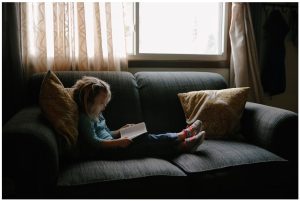 Teaching kids the value of keeping the home scratch-free or simply telling them to Unscratchthesurface goes beyond just maintaining a neat space. It’s about instilling respect for their surroundings and understanding the effort it takes to build a comfortable home. This journey doesn’t require strict rules or complex strategies but a blend of patience, creativity, and straightforward communication.
Teaching kids the value of keeping the home scratch-free or simply telling them to Unscratchthesurface goes beyond just maintaining a neat space. It’s about instilling respect for their surroundings and understanding the effort it takes to build a comfortable home. This journey doesn’t require strict rules or complex strategies but a blend of patience, creativity, and straightforward communication.
Starting with the basics, it helps to explain why it’s important to take care of the house. Children are naturally curious and more willing to follow guidelines when they understand the reasons behind them. A simple explanation could be, “We keep our home free from scratches and damage so it stays nice and cozy for us and our visitors. It’s our special place, and we need to treat it with care.”
Using protective covers and organizers is a practical step in the right direction. Investing in durable, child-friendly furniture and using protective pads under items can prevent accidental scratches. Encouraging the use of coasters, placemats, and soft felt pads under toys can also play a significant role in preserving surfaces.
Setting a good example is perhaps the most powerful tool. When children see adults treating the home with care, they are more likely to mirror those actions. It’s about walking the talk — if the aim is to prevent scratches on the floor, make it a habit to lift furniture instead of dragging it and avoid wearing shoes inside the house.
Creating a sense of ownership and responsibility can be a game-changer. Assigning children age-appropriate chores that involve taking care of their environment teaches them the value of their living space. It could be as simple as wiping down tables after use or helping to put felt pads under furniture legs. Acknowledging their efforts with praise or small rewards reinforces positive behavior.
Communication is key, and it works best when it’s clear and consistent. Setting clear guidelines about what is and isn’t acceptable in the home, and gently reminding them when they forget, helps children learn boundaries and respect for their environment. It’s not about reprimanding but guiding and correcting with patience.
Finally, turning it into a fun, shared responsibility can remove the drudgery associated with household chores. Family cleanup days or challenges with rewards can make caring for the home an enjoyable activity rather than a tedious task. It builds teamwork and a shared sense of pride in keeping the home looking its best.


 In Germany, a Radolfzell advertising agency (Werbeagentur Radolfzell) and a florist may promote the honoring of
In Germany, a Radolfzell advertising agency (Werbeagentur Radolfzell) and a florist may promote the honoring of